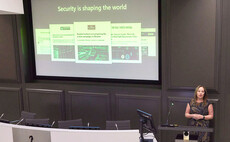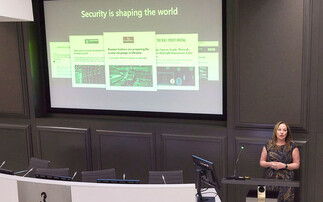Caspar Bowden, Microsoft's former chief privacy officer, says 'I don't trust Microsoft' after Prism revelations, and recommends switching to open-source software
Caspar Bowden, the former chief privacy adviser to Microsoft, has said that he does not trust the software giant and has recommended switching to free and open-source software instead. Speaking ...
To continue reading this article...
Join Computing
- Unlimited access to real-time news, analysis and opinion from the technology industry
- Receive important and breaking news in our daily newsletter
- Be the first to hear about our events and awards programmes
- Join live member only interviews with IT leaders at the ‘IT Lounge’; your chance to ask your burning tech questions and have them answered
- Access to the Computing Delta hub providing market intelligence and research
- Receive our members-only newsletter with exclusive opinion pieces from senior IT Leaders





















